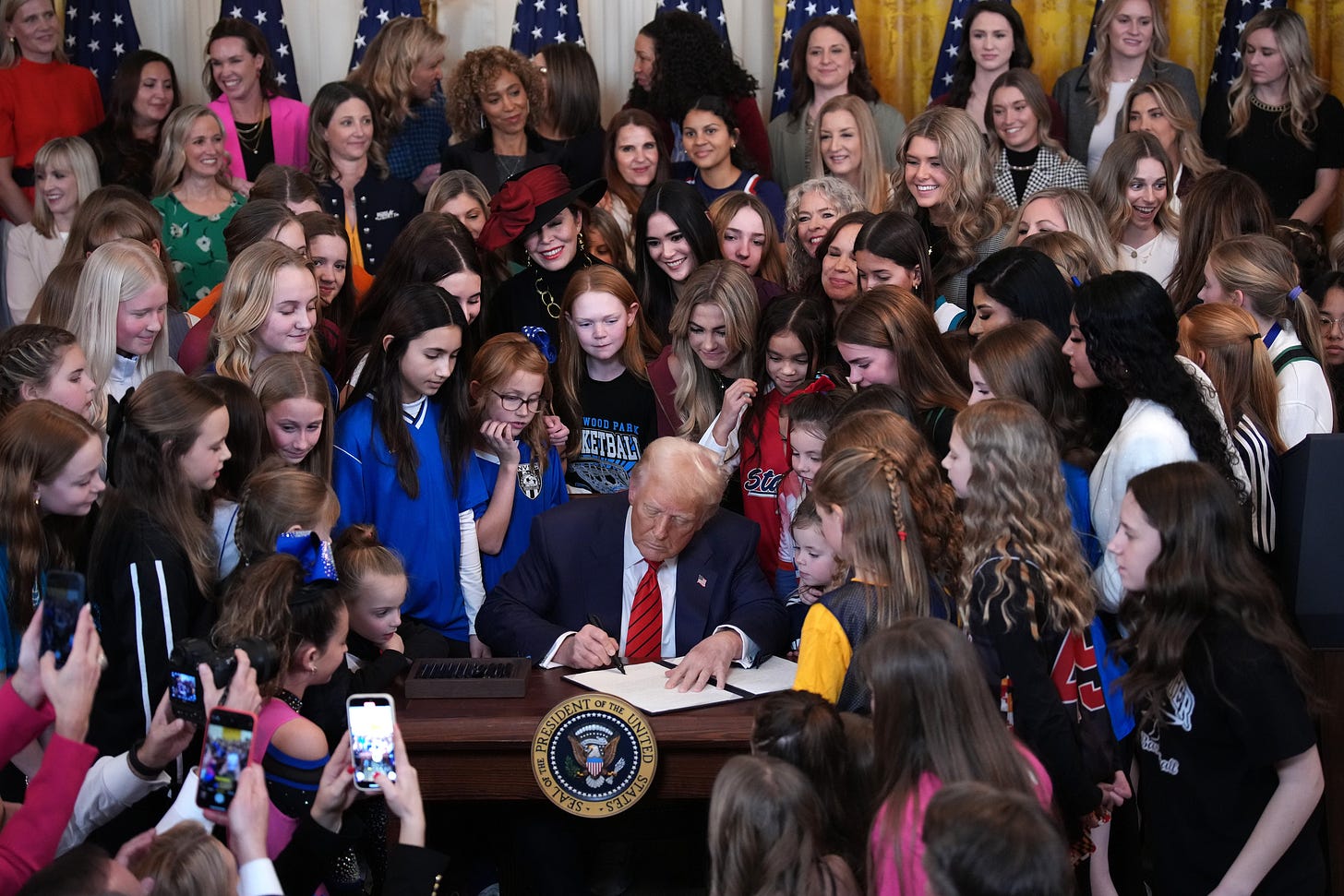Two American Traditions, One Choice: Why Leadership Means Rejecting Exclusion
Response to Senator Gallego's Statement on Transgender Youth Sports
America has always been a nation of dual traditions. One tradition is rooted in exclusion—denying rights, dignity, and belonging to those who are perceived as different or threatening to the status quo. This tradition has historically been used to justify discrimination based on race, gender, religion, sexual orientation, and gender identity. The other tradition is one of inclusion—of gradually, and sometimes painfully, expanding the promise of equality to all people, regardless of who they are or whom they love.
At critical junctures in our history, true leaders have helped us move toward inclusion. They’ve resisted fear and rejected the easy political temptation to scapegoat marginalized communities. Unfortunately, not every leader makes that choice. When a public servant chooses the path of exclusion—when they align themselves with those who seek to divide, stigmatize, and scapegoat for political gain—they fail the basic test of leadership.
Senator Ruben Gallego’s recent alignment with those promoting anti-transgender legislation is one such failure. By siding with extremists who use fear and misinformation to target transgender people under the guise of “protecting fairness in sports,” he is turning his back on the very values of equality and justice he was elected to uphold.

Let’s be clear: fairness in athletic competition is a legitimate subject of discussion. Ensuring equity in amateur and professional women’s sports, for example, is a critical issue that deserves thoughtful attention. But what is happening now—across state legislatures and in Congress—is not a good faith debate about fairness. It’s a political strategy. It’s a calculated effort by right-wing activists to enshrine discrimination into law under the cover of concern for women’s sports. And it’s deeply harmful to cisgender and transgender athletes, as well as society as a whole.
These proposed laws are not about supporting women or athletes. They are about weaponizing fear of transgender people to win elections and rile up political bases. We’ve seen this tactic before, whether it was used to oppose the integration of schools, to ban interracial marriage, or to justify the criminalization of LGBTQ+ people in public life. It’s the same exclusionary tradition, just repackaged for a new generation.

What history teaches us, however, is that the institutions closest to these challenges—those with firsthand experience—are best equipped to navigate them. In sports, that means athletes, coaches, trainers, and sports professionals. These are the people who understand the nuances of fair competition, who are already developing and applying policies that account for both competitive integrity and inclusion. They are doing so in ways that are informed by science, experience, and compassion—not ideology.
Time and again, athletics have led the way on issues of integration and inclusion, from Jackie Robinson breaking the color barrier to Title IX opening doors for generations of women. Sports have often paved the road that society later follows. It is profoundly un-American—and counterproductive—to now turn to politicians to mandate discrimination in an arena that has so often modeled progress.

These laws don’t just target transgender people—they also create a culture of suspicion and policing that harms all women and girls. By legitimizing the idea that gender expression should be scrutinized and enforced, these policies open the door to invasive, humiliating, and often traumatizing treatment of cisgender and transgender athletes alike. Across the country, as such laws have taken effect, there’s been a noticeable rise in incidents where cisgender girls in K–12 sports have been harassed, questioned, and even excluded based on how they look or behave. These laws fail their stated purpose. Rather than protecting girls and women, they subject them to a system of surveillance and control that undermines their dignity, safety, and ability to participate freely in sports.
Transgender young people, in particular, are among the most vulnerable in our society. They face high rates of bullying, mental health challenges, and barriers to participation in everyday life. Similarly, cisgender girls and young women face harassment, discrimination, and are denied equal opportunity compared to cisgender boys and young men. Pitting two marginalized groups against one another does nothing to advance equality for either group. Denying transgender youth the chance to play sports—just like their cisgender peers—is not about fairness. It’s about exclusion. And it sends a dangerous message: that who they are is inherently wrong, or unfair, or undeserving.
America is better than that.
We’ve rejected fear and myth in the past when it was used to keep Black athletes off the field, to question women’s capacity to compete, or to deny queer people a place in the locker room. We must do so again now. We must choose the tradition of inclusion.
Trans and cis youth deserve the chance to play, to compete, to be part of a team, and to thrive. They deserve leaders who will stand with them, not against them. They deserve a country that lives up to its highest ideals—not one that falls back on its darkest instincts.
The question for our leaders is simple: Which tradition will you choose?




